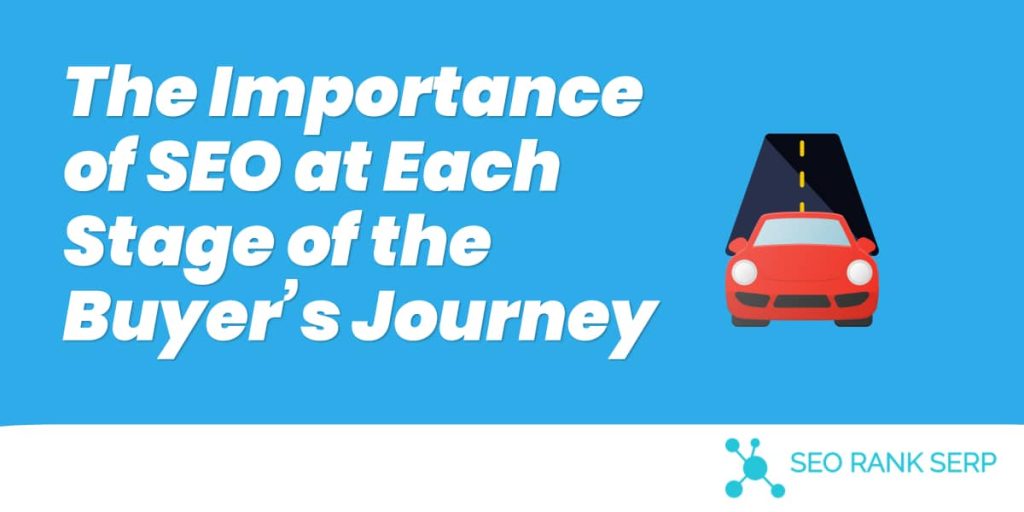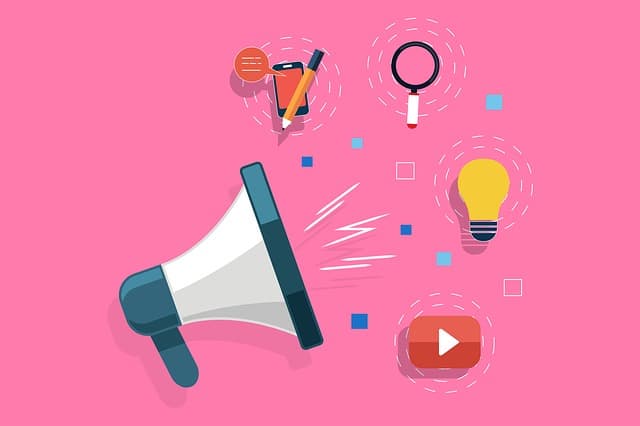Content marketing should be an important element of your marketing strategy. Top brands like Pardot, Hubspot, and The Content Marketing Institute have been discussing the buyer’s journey in relation to search engine optimization (SEO) and content marketing strategies for years now. For your business to grow from point A to point B, you must understand the buyer’s journey and infuse SEO in it.

There are four stages of the buyer’s journey namely:
- Awareness
- Consideration
- Conversion
- Retention
To leverage the above stages, you need to identify the content, keywords, and landing pages that are relevant to each of the above stages. Furthermore, you have to understand the buyer persona and intent to carry out keyword research, optimize your landing pages and organize your content assets. Also, take advantage of data analytics at your disposal to update your website pages.
Awareness Stage
This is the first step in a buyer’s journey. Creating awareness by giving educational or informational value is one of the best ways of ranking high up in the search engines. If your contents are just informational and optimized for educational purposes without pushing the potential buyer to the consideration stage, there is a problem.
Look at it this way, if a buyer comes onto your page with the mindset of purchasing something and you’re not moving them from the awareness stage to the consideration stage, you’ve got a mismatch because the buyer may likely move on to the next person that invites them to the consideration stage.
The mistake most marketers make is that they don’t know the significance of the awareness stage (aka the discovery stage). Perhaps, because a lot of people see it as the non-transactional stage. It will interest you to know that informational searches are responsible for about 80% of all search request and educational and informational contents are highly important if you want to generate incoming ranking signals that will improve the SEO of your website.
Here is what you need to do to optimize for the Awareness stage:
- You need to identify educational and informational keywords
- You need to also identify landing pages that will generate the highest traffic, not excluding contents associated with these keywords.
Once you’ve gotten your Awareness keywords, integrate it in your website pages and evaluate your landing page data. You need to pay huge attention to the diagram below before modifying your landing pages.
Moving on, let’s say your landing page targets the keyword(s) your buyers are using in the awareness phase of their journey and it has huge traffic, an average conversion rate, and a low bounce ratio… optimize it to fit your buyer’s persona.
Evaluate your site to see if there is a vital keyword that doesn’t have a matching landing page. If there is, you should create one around it.
Here are the type of contents that are commonly used in the awareness stage:
- Guest Articles
- Infographics
- Blog Posts
- Free Tools and Templates
N.B: If you want to add a call to action (CTA) on your Awareness pages, don’t use the generic “Contact us” line. It is not a realistic way of directing someone who just landed on your site. Alternatively, ensure that your CTA pushes your buyer to the next phase of their journey through the following:
- Videos
- eBooks
- White Papers
- Pre-recorded Webinars
Optimize your landing pages with the right CTA so it is able to convert easily.
The consideration stage
Pay close attention to this stage because this is where your prospects are seeking more information to add to what they already know. At this point, they are comparing various sources and taking a closer look at their options. You can place consideration keywords in your form submissions, your FAQ and when you talk with your sales team.
You need to optimize your landing pages and search engine snippets, so they can address your buyer’s fears and concerns while in the consideration stage. Also, ensure that your landing page has easy navigation so that your prospective buyers can find information easily.
The best way to help a potential buyer who is within the consideration stage is to add links and buttons to your FAQ page, assets and data sheets to help him make up his mind and move to the next stage.
Make sure you have a search function on your site and configure site search reporting in Google Analytics so you will have access to the keywords your users are using on your site. Access to this information will provide you a list of consideration keywords that you can target.
Furthermore, as soon as you’ve gotten your consideration keywords, familiarise yourself with the following modifiers that show your buyer’s intent.
- Best
- Affordable
- Review
- Comparison
- Top
- Solution
- Troubleshoot
- Provider
Create assets that will engage your buyer persona, so they can move from the consideration stage to the conversion stage. Assets such as the following:
- Free trials
- Appraisal data sheets
- Video tutorials
- Access to industry data and statistics
You can also take advantage of interactive contents like questionnaires, surveys, pre-formatted spreadsheets, etc. to help your buyer make up their mind.
The Conversion Stage
Now we are on to serious business. A buyer in the conversion stage is ready to purchase what you have to offer so make sure your landing page is convincing enough to help kill off any red flags.
Infuse conversion keywords in your landing page. If you’re running a Pay Per Click (PPC) campaign, these are keywords that you should be targeting.
You need to capitalize on the details.
Use the following conversion details to build your persona data:
- Device type
- Geographic data
You can leverage Google Analytics to track device type and geographic data. Similarly, Twilo can be used to track the conversion data of potential clients who reach out to you through the phone.
You can use the information gotten from the geographic data to improve your local SEO. If your conversion traffic is coming through mobile devices, don’t hesitate to optimize your landing pages for mobile.
Here are a few suggestions you can implement to make your brand trustworthy:
- Make use of snippets/tags with a CTA or question to attract them, so they can click on your page
- Write Copy that helps your potential buyer assess their ROI
- Write Copy that points them in the direction of free trials, client testimonials and customer service.
- Use Graphics that reveal your trustworthiness such as industry affiliations, awards, and other trust indicators.
The retention stage
According to a study by Frederick Reichheld, he discovered that when you increase your customer retention rate by 5%, you’re indirectly increasing your profits by 25% to 90%. It is so sad that a lot of marketers overlook the retention stage of the buyer’s journey.
Put out retention contents that will engage your customers and make them always return to your site to get updates, product news, etc.
Never assume that your website will be the first point of entry for a buyer who has questions or concerns. In most cases, your buyer may have gone to Google to run a search. To stay at the top of your game, you need to optimize your contents for search queries that your buyers search for within the retention phase to be able to stay at the top of the search results.
How to identify retention keywords
It is not that difficult to identify retention keywords, evaluate various sales you have had from customers that have patronized you more than once and you’ll find the trigger. Also, you can leverage your email marketing stats to know the type of contents that holds the attention of your potential prospect, engages, converts and retains their interest.
Here are some of our other content options and ideas
- Limited free trials for products and services
- Free webinars and training
- Problem-solving tools
- Informative blog posts
- Product updates and Improvement options
- Industry news
- Client surveys in exchange for participation rewards
Retention contents should be relevant, timely and a helpful resource to your clients for them to always come back for more. Take advantage of google analytics tool to track the statistics of returning visitors on your website.
Returning visitors
With the help of technology, you can actually track your visitor‘s behavior with a certain level of accuracy, even though you can’t always know who your visitors are. Make sure you set up tracking for your new and returning visitors.
As you evaluate performance data to get content ideas for the retention phase, create a section within Google Analytics to track content performance for visitors who have been on your site X number of times. You should do this if you feel the X number of times is relevant.
You need to take the following into consideration:
- Session expirations
- New session
You need to realize that a single user could open several sessions and some people might be accessing your content with multiple devices.
Conclusion
Your content marketing long term objective should be SEO rankings. It is better for your article or blog post to rank high up on page one of Google’s search results than for it to just be popular on social media. Take your time to create and optimize contents that will engage your prospects on every stage of their journey.

Jay
I've worked for WooRank, SEOptimer, and working on a cool SEO audit tool called SiteGuru.co. Now I have build Linkilo and SEO RANK SERP WordPress theme. I've been in the SEO industry for more than 5 years, learning from the ground up. I've worked on many startups, but also have my own affiliate sites.
TRY OUR FULLY SEO-OPTIMIZED WORDPRESS THEME FOR AFFILIATE MARKETERS!
No need to hire SEO experts anymore to fix your site technical SEO issues
IMPROVE YOUR SITES RANKING TODAY





